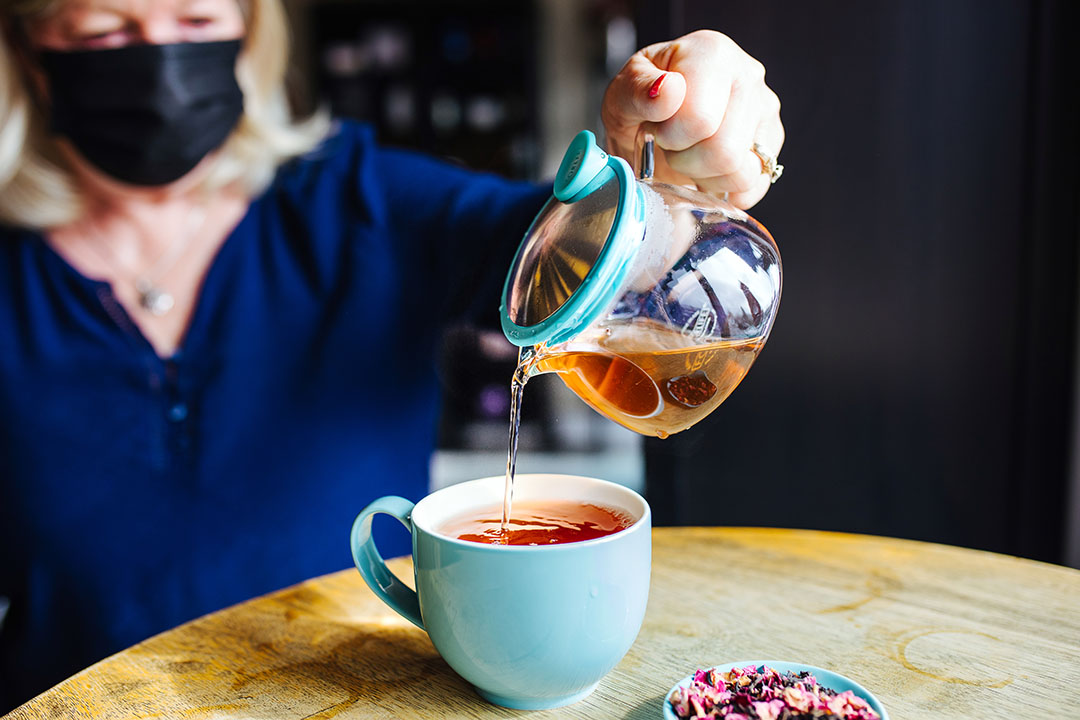How to steep original combinations of herbs, spices, and leaves to create more than just a delicious cup of tea.
A pinch of this. A sprig of that. Add some tea leaves. Voilà! Home brewers are catching the trend of tea blending in a big way. Whether to help with inflammation, sleep issues, or an upset stomach, tea blends can be highly beneficial. Flavor profiles and ingredients are as vast as the Great Basin, but one element remains consistent among the steaming combinations: loose-leaf tea.
Different from its pre-bagged counterpart, loose-leaf tea usually is of better quality — with more antioxidants, intact leaves, fresher ingredients, and a stronger flavor.
“Green and black teas contain the highest content of antioxidants of anything short of blueberries and help to prevent cell damage that can lead to cancer,” explains Tom Stewart, owner, apothecarist, herbalist at Truckee Meadow Herbs in Reno. “A little bit of caffeine gives people a lift in the morning to get them going. There’s a wide selection of teas when it comes to black or green, hundreds of different variations depending on how it was cured and what it’s flavored with.”
Stewart says there also are many tea blends made with non-caffeinated rooibos tea leaves.
“They have a really light, delicate flavor with lots of vitamins and minerals,” he says. “You can mix rooibos with anything you like.”
Chai Concoctions
Perhaps one of the more well-known blended teas to make at home, chai has an ever-growing popularity, and tea purists agree that the loose-leaf versions (as opposed to the sugary concoctions found premixed in cartons) make all the difference, from both taste and health perspectives. With a strong flavor profile to start, chai may be used as a base for tea blending; adding seasonal herbs and ingredients is a simple way to make it original.
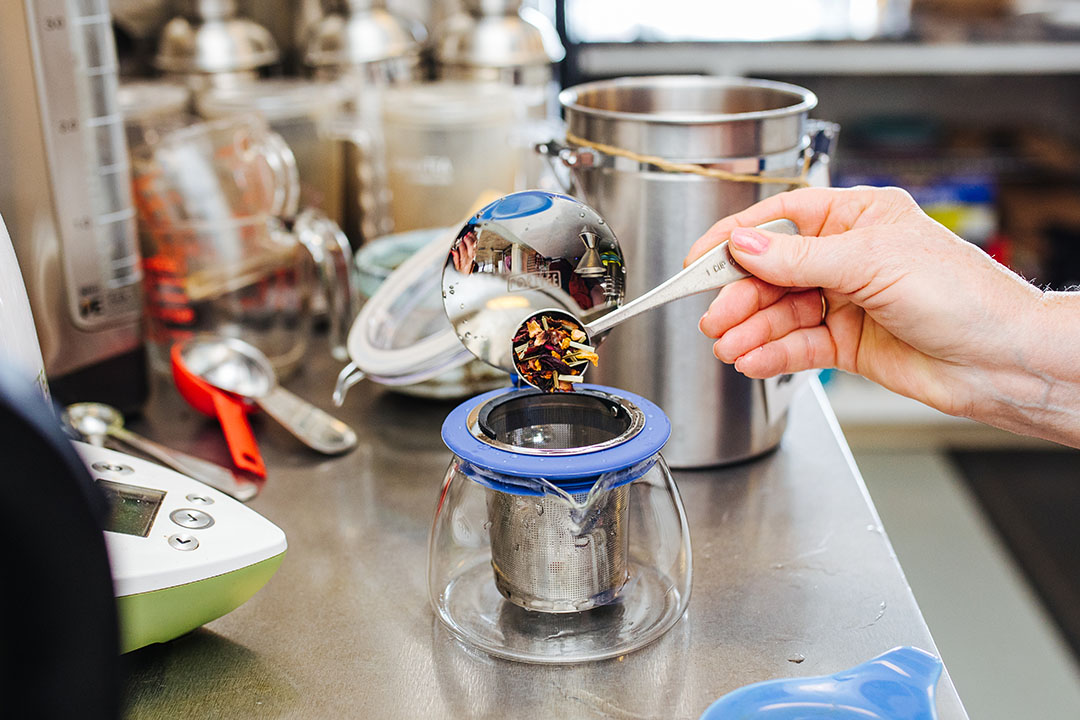
Chá Fine Teas in Truckee offers eight takes on the spice-forward beverage, all featuring special combinations of loose-leaf tea and infusions.
“Pumpkin spice, apple spice, orange chai, spicy, our house blend … there’s something for everyone, and we make it from the loose-leaf tea,” notes Cindy Shippy, co-owner of Chá Fine Teas.
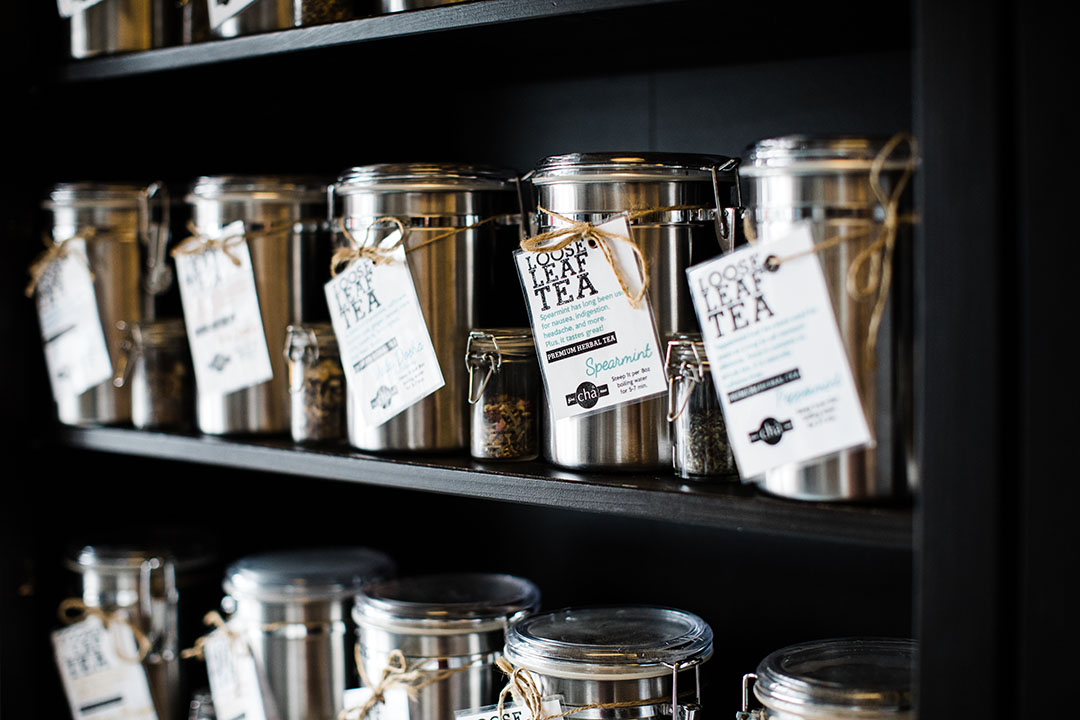
Experimenting with Ingredients
Seemingly endless opportunities exist for tea blends. Stewart encourages folks to start with simple blends, such as adding a pinch of dried wintergreen or spearmint to black, green, or rooibos tea leaves when steeping to see how they work together and determine flavor profile preferences.
Shippy agrees.
“With tea it’s really up to the individual and how they like it,” she says. “You can do a robust flavor with one single brew or use the same tea four times before throwing it away.”
When it comes to mixing for medical conditions, Morgan Nott, manager of Too Soul Tea Co. in Reno, recommends starting with some background knowledge of the herbs’ benefits or characteristics.
“Research the specific herbs and go with that kind of profile as opposed to flavor,” Nott says.
Nott is familiar with how ingredients work together to help with various ailments. She serves several house blends and is able to help customers create their own blends at home. People with insomnia can mix lavender and chamomile; achieve inflammation benefits from chickweed, dandelion leaf, and turmeric; and combine peppermint, echinacea, and sarsaparilla root to help boost immunity. Nott recognizes that with these combinations, the flavor profiles can become a little earthy or bitter. She has a few suggestions that mellow piquant ingredients.
“There’s an herb called licorice root that is a natural sweetener that is 10 times sweeter than sugar,” Nott says. “We add it to most of our blends to make it taste better. It is anti-inflammatory and helps with digestion and gut health. Peppermint is also a good one because it’s strong and masks the flavors that some people don’t really like.”
To Your Taste
Stewart likes to help customers create their own blends based upon flavor preferences and medicinal needs.
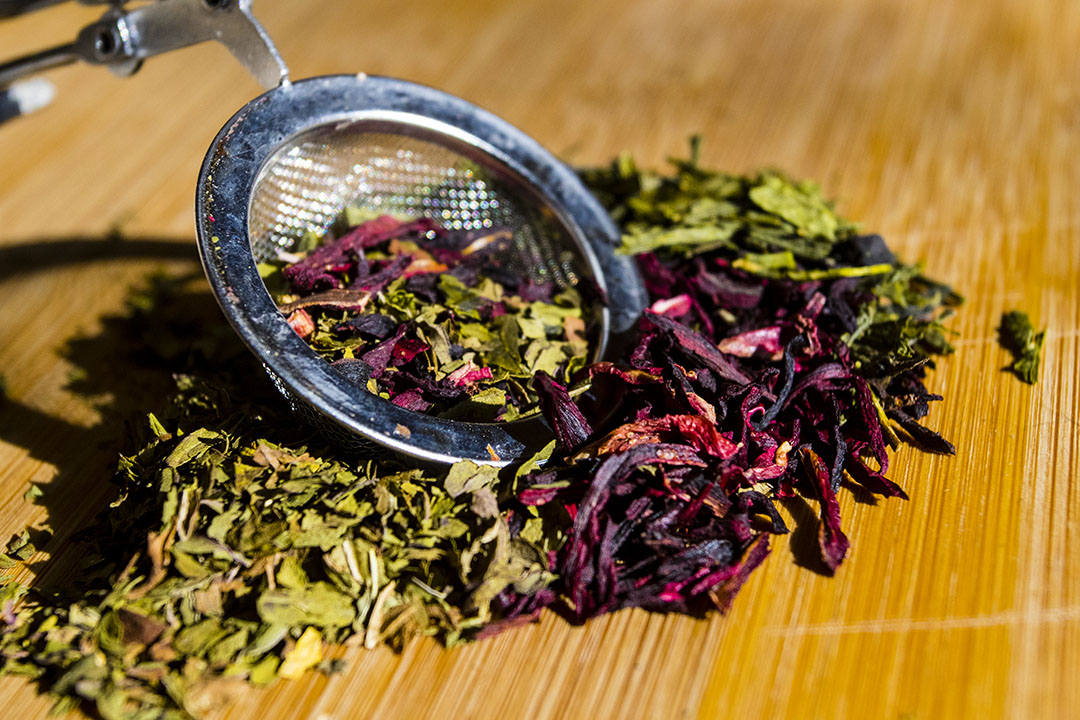
“One of my favorites is blending sencha green tea, a basic jasmine tea, mixed with hibiscus and a little peppermint,” Stewart says. “With some of the herbal elements, you have to look at what you’re using and the steep times.”
Barks, berries, and roots have to steep for a long time to transfer their flavors and health benefits, while tea leaves and the delicate parts of plants and flowers will quickly infuse. With some of the more complicated blends, Stewart, Shippy, and Nott urge folks to visit their businesses for tips.
Now, get sipping!
Hibiscus Sencha Tea
(courtesy of Tom Stewart, owner, Truckee Meadow Herbs in Reno. Serves 1)
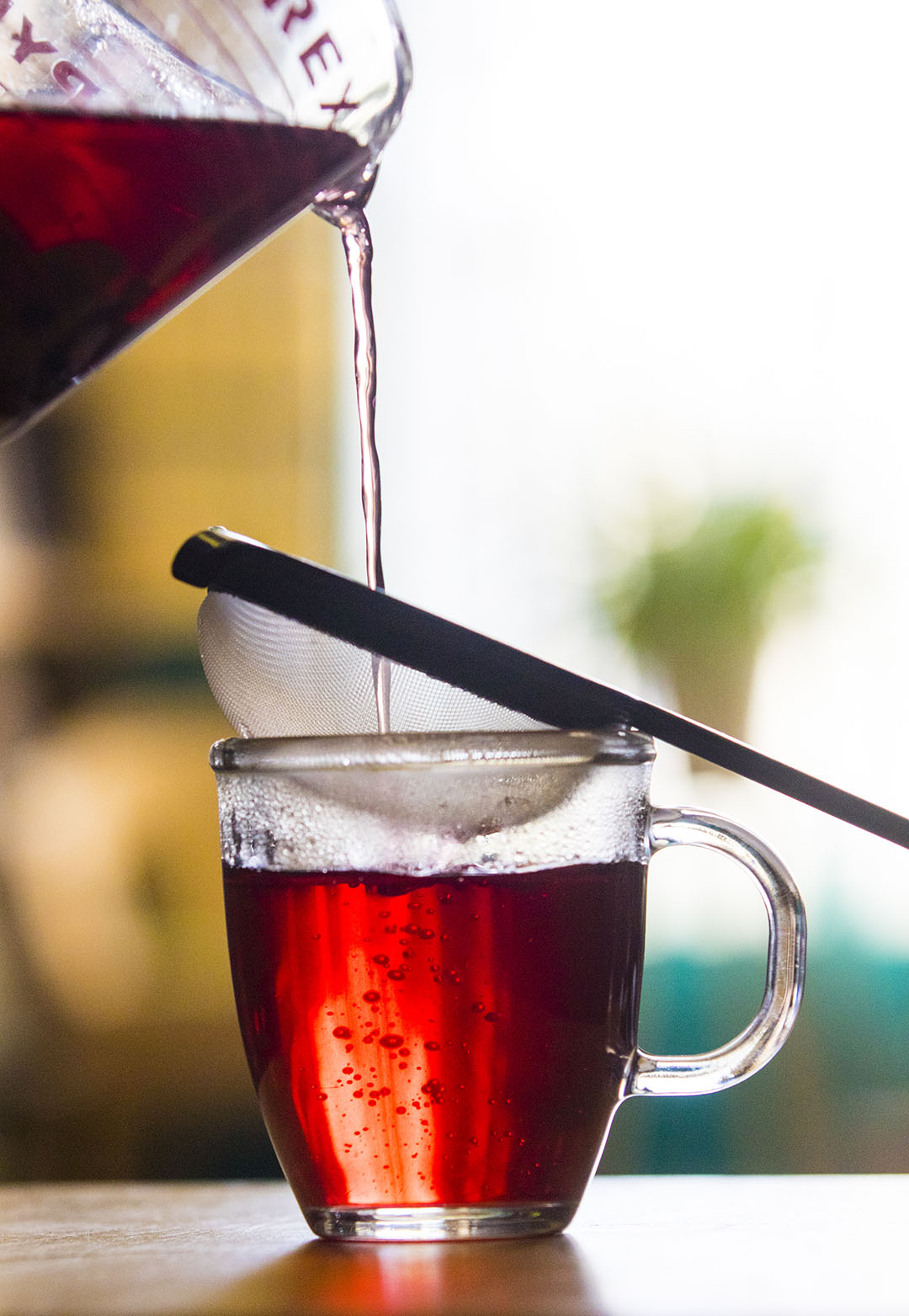
2 cups water
1 teaspoon sencha green tea
1 teaspoon dried peppermint leaves
½ teaspoon dried hibiscus flower
Bring water to boil. Add other ingredients. Steep for 5 minutes, strain, and drink. This also can be made stronger and diluted with ice to make a great iced tea.
A tea lover herself, Heidi Bethel enjoys many teas, but traditional chai tea with orange peel tends to be her go-to option. She agrees that everyone benefits from a cup of tea each day.
RESOURCES
Chá Fine Teas
12030 Donner Pass Road, Ste. 2, Truckee
530-536-5043 • Chafineteasoftruckee.com
Too Soul Tea Co.
542½ Plumas St., Reno
775-322-2001 • Toosoultea.com
Truckee Meadow Herbs
1170 S. Wells Ave., Ste. 4, Reno
775-786-8814 • Truckeemeadowherbs.com
